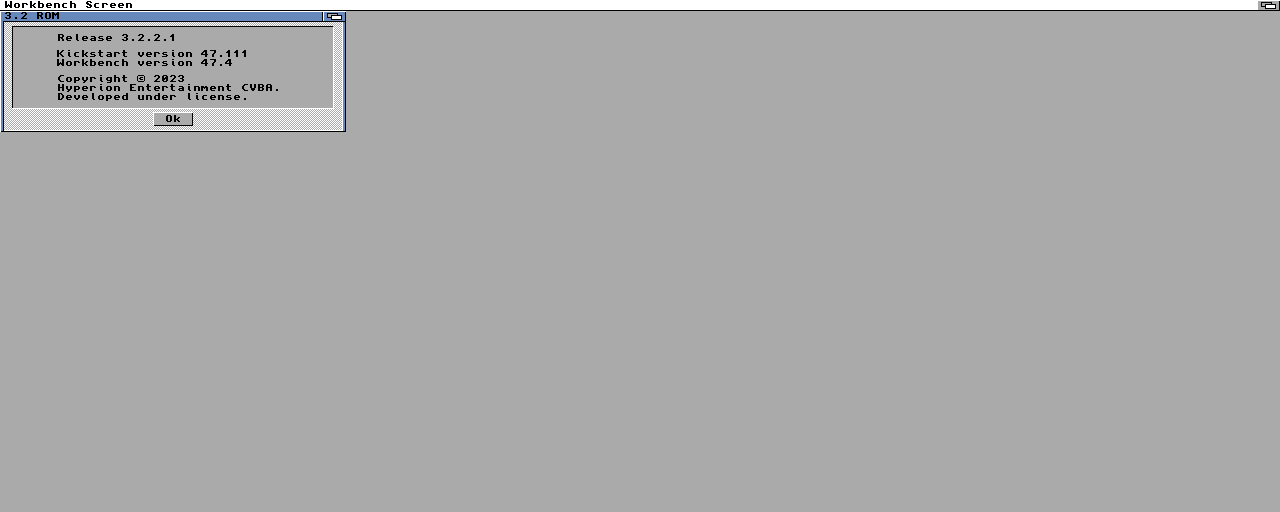Upgrade 2024
03 May 2024It has been almost three years since I last posted here, and almost as long since I actually did anything with my Amiga 1200.
You see, first my floppy drive stopped working, and then I got regular checksum errors with my CompactFlash card. And no, I never got around to updating from AmigaOS 3.1.4 to AmigaOS 3.2 (and the various bug fixes for it) since I last posted here.
Spending some time with my friend Daniel (Fediverse, Twitch, YouTube) recently motivated me to finally address the hardware issues that prevented me from having fun with my own Amiga 1200 for the past few years.
Out with the old
I started this year’s upgrade project by removing some old components: Individual Computers ACA1233-40 accelerator card, Kipper2k External Compact Flash Adapter, and the Power M-disk 1,76 MB floppy drive.
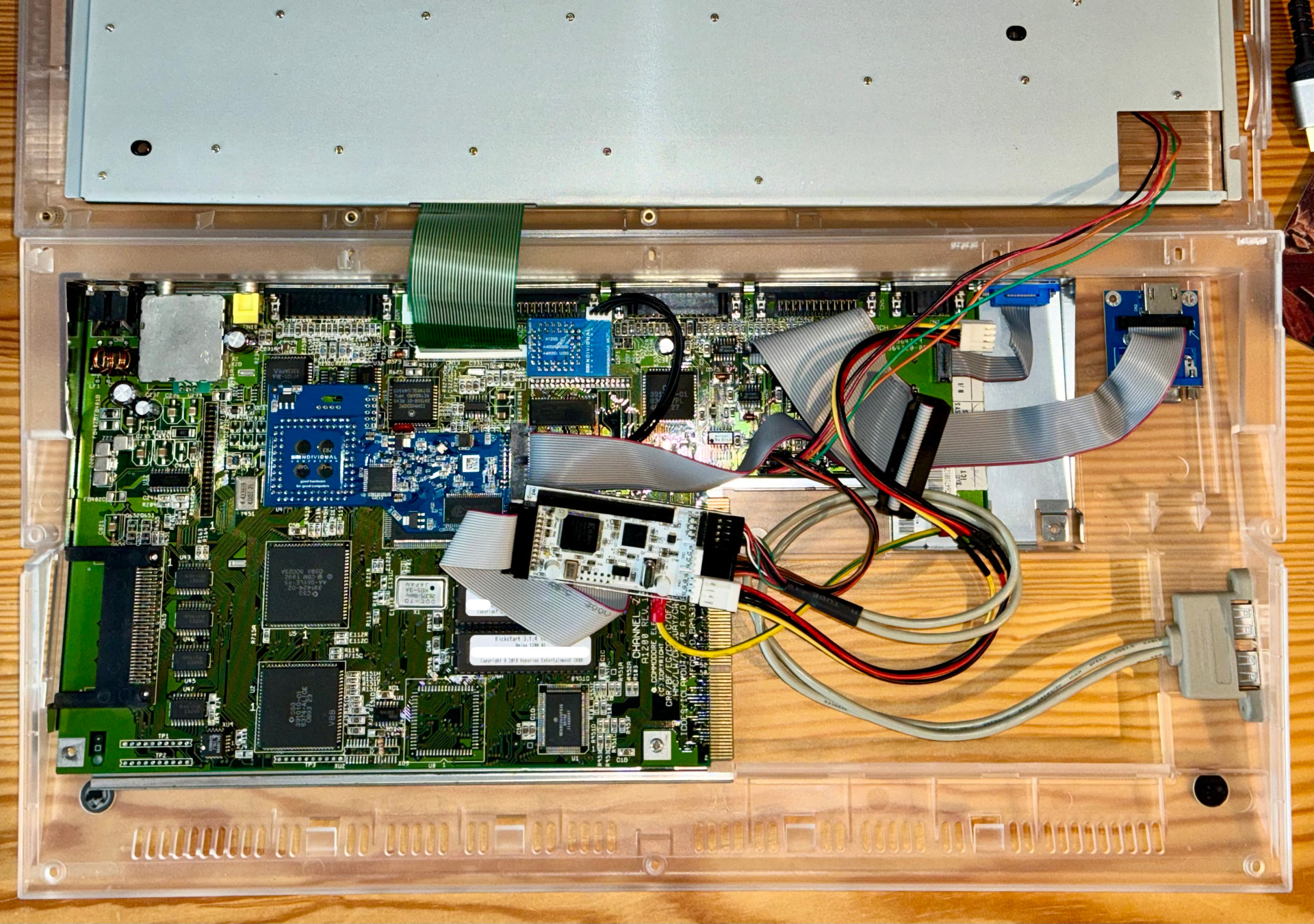
USB Floppy Emulator
To replace my floppy drive, I decided to use a GoTek floppy drive to USB emulator. I found a version that consists of “only” the PCB with a 3D printed bracket for internal installation.
After installing the USB floppy emulator, the top right of my Amiga 1200 now looks like this:
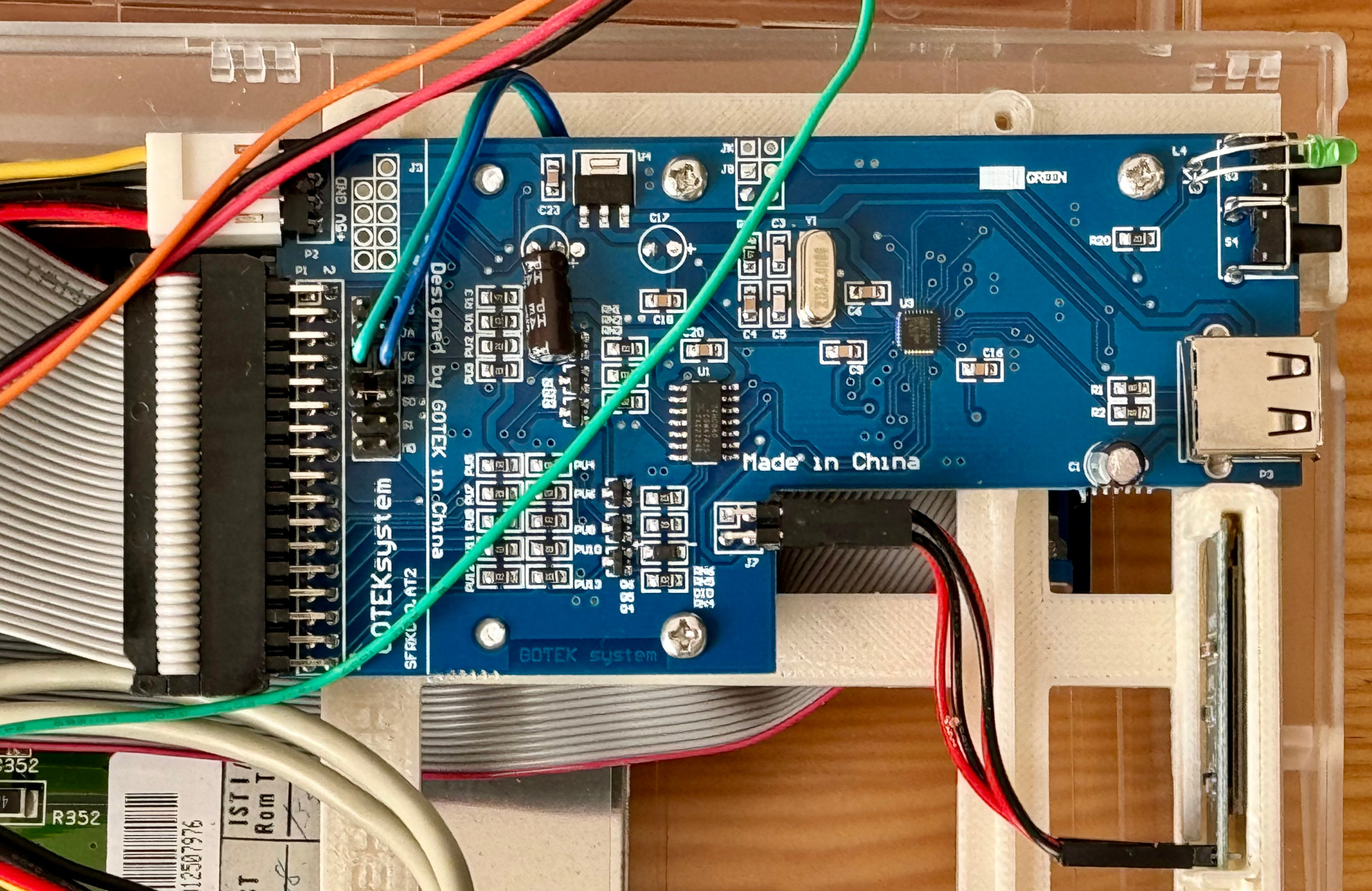
Accelerator Card
A new Individual Computers ACA1234-50 accelerator card has replaced my old Individual Computers ACA1233-40 accelerator card. It has a number of improvements over the previous model, the most important for me being the fact that it comes with a CompactFlash adapter that does not depend on the on-board IDE controller.
Before installing the ACA1234-50 accelerator card, I attached the RTC module to it that I used on the previous model and inserted a 4GB CompactFlash card.
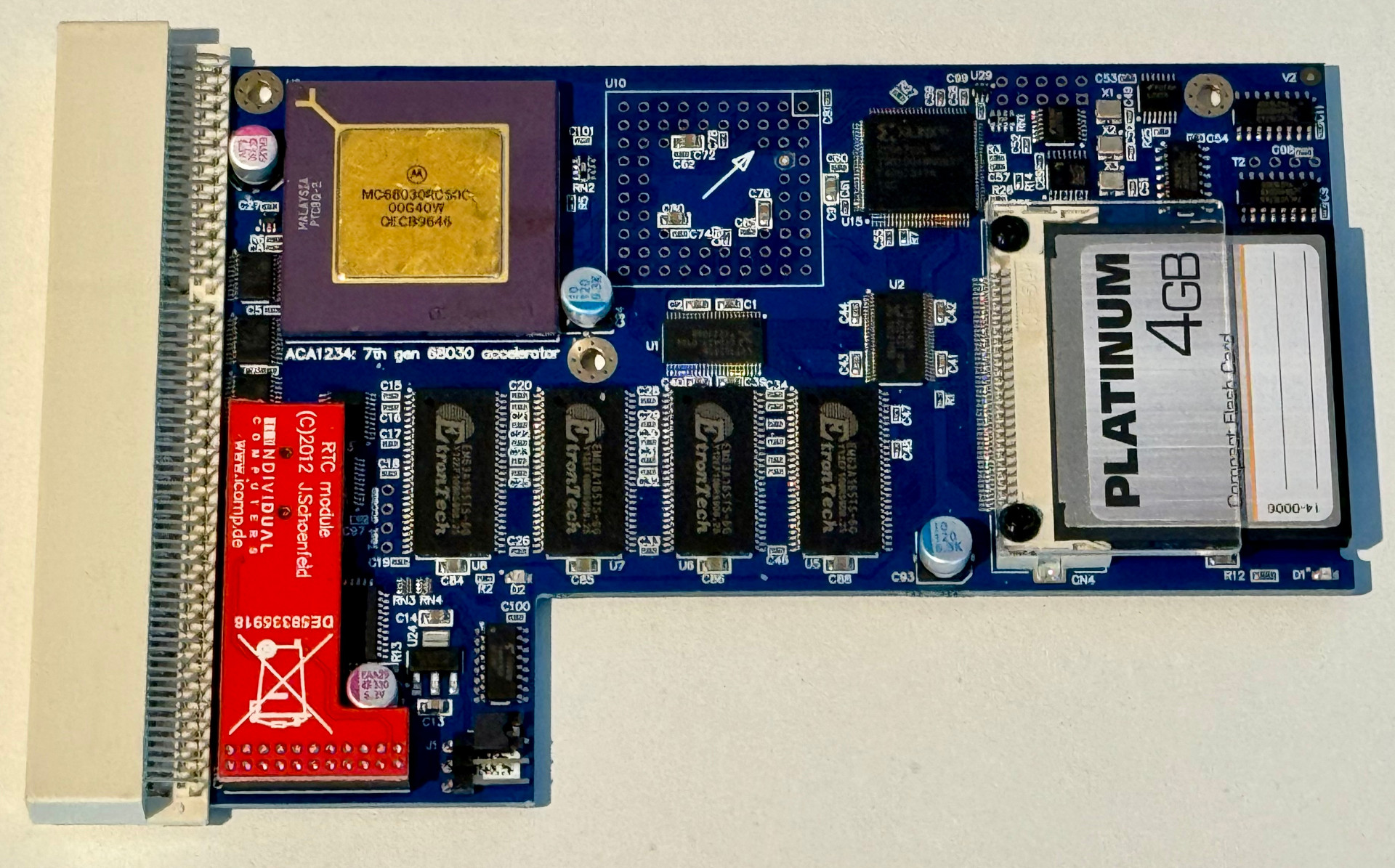
This is what the inside of my Amiga 1200 looks like after installing the ACA1234-50 accelerator card:
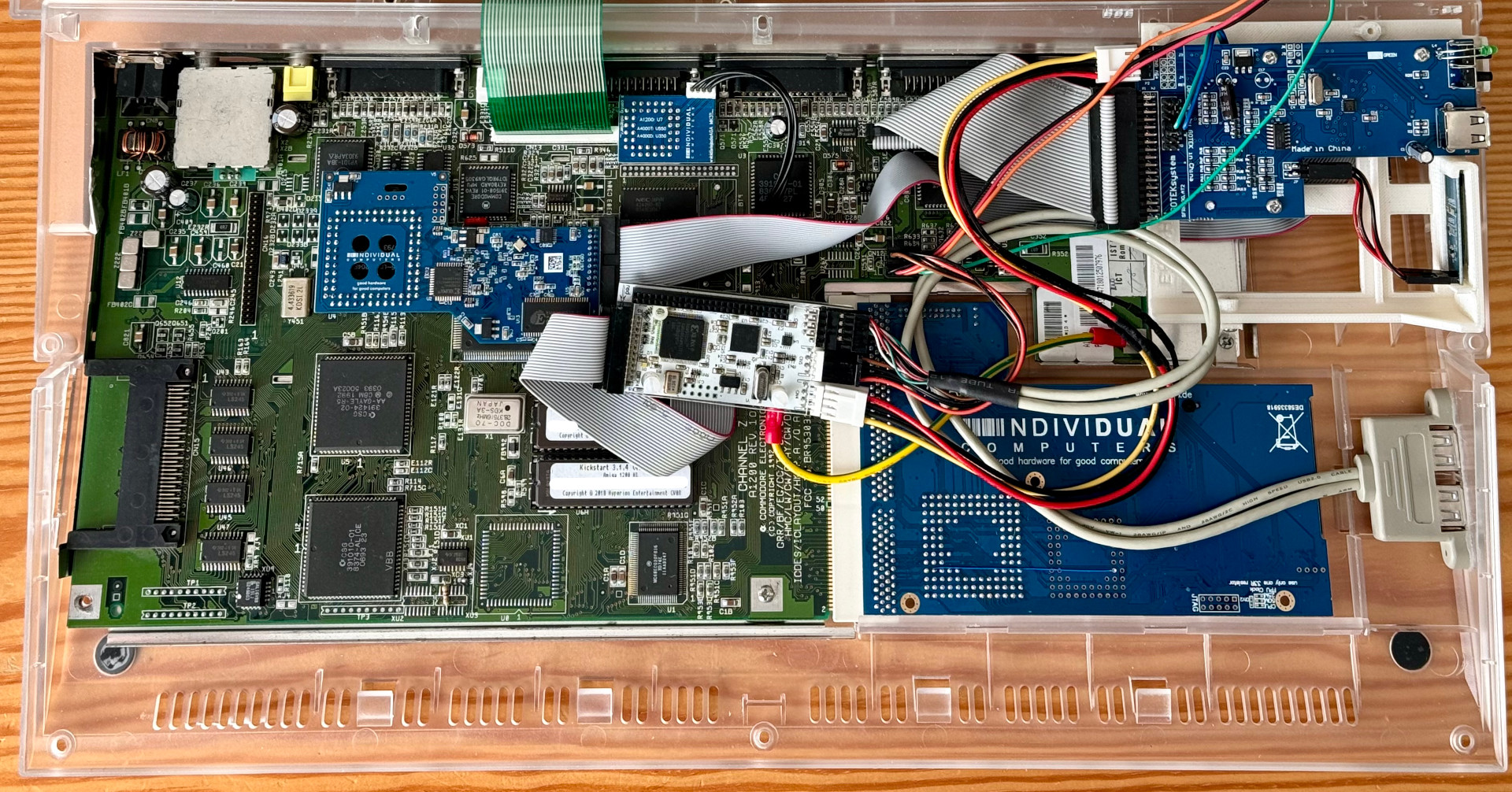
Operating System
After booting into the virtual installation environment which is provided by the ACA1234-50 accelerator card’s firmware, I used its tools to partition the CompactFlash card and format it using Professional File System III. I then installed AmigaOS 3.2 from emulated floppy disks.
After a short time I had a minimally viable system to boot into. However, there was one thing that annoyed me: the default S:Startup-Sequence script that is executed during boot runs C:CPU CHECKINSTALL, which complains that a CPU with a Memory Management Unit (MMU) is installed, but that the “corresponding CPU library is missing”. After a bit of research, I learned that the designer and manufacturer of the ACA1234-50 accelerator card advises against installing such libraries. I trust him on this, so I simply commented out the relevant section of S:Startup-Sequence.
The next step was to install the Poseidon USB stack software so that I could transfer files to my Amiga 1200. Again, I used an emulated floppy disk. At the end of the installation process, the USB stack was successfully started and I was able to use a USB stick connected to the USB ports of my RapidRoad.
After rebooting, I got an error that the ENVARC:PsdStackloader program, which is called from S:User-Startup during boot to start the USB stack, could not be found. I was able to get the USB stack working again by reinstalling it, but doing this every time I want to use the USB ports is not a convenient solution. After some fiddling around, I found out that Trident, the Poseidon USB stack’s preferences program, creates ENVARC:PsdStackloader when you save the current configuration. Problem solved! Strange though, as I have never had to do this in the past. In fact, I cannot remember ever having to use Trident before. Oh well.
With convenient file transfer set up and working, I went on to install updates to bring AmigaOS up to version 3.2.2.1. The last thing I did, which I consider to be part of the operating system installation, was to use acatool to copy the AmigaOS 3.2.2.1 ROM image to the ACA1234-50 accelerator card. This moves the operating system ROM into fast memory and improves the performance of ROM operations.
Now I have an up-to-date operating system with a working USB stack.

